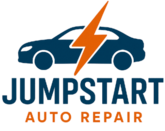The term “motor locked up” is often used in the context of vehicles and machinery, indicating a situation where the motor or engine has become immobilized and is unable to turn or operate as intended. This condition can lead to significant downtime and costly repairs, making it imperative for vehicle owners and operators to understand what causes a motor to lock up, how to identify the symptoms, and what steps to take when it occurs. In this complete guide, we will delve into the details surrounding locked-up motors, including causes, symptoms, and preventative measures.
Understanding Motor Lock-Up
When we refer to a motor being “locked up,” we are describing a failure in which the internal components of the motor have seized or become immovable. This can happen for various reasons, and the result is often a complete halt in the motor’s ability to perform its designated function.
Common Causes of Motor Lock-Up
- Insufficient Lubrication: Motors require adequate lubrication to operate smoothly. A lack of oil or the use of contaminated oil can lead to increased friction, causing the motor components to seize.
- Overheating: Excessive heat can warp parts and cause them to expand, leading to a lock-up situation. Overheating can result from various issues, including a malfunctioning cooling system or overloading the motor.
- Debris or Contamination: Foreign objects or contaminants can get into the motor and obstruct moving parts, leading to a lock-up.
- Wear and Tear: Over time, the components of a motor can wear down, which might lead to a loss of structural integrity and eventual lock-up.
- Electrical Failures: In electric motors, electrical issues such as short circuits can prevent the motor from starting or cause it to lock up.
- Mechanical Failures: Components such as bearings, pistons, or gears may break or malfunction, preventing the motor from functioning correctly.
Symptoms of a Locked-Up Motor
Recognizing the symptoms of a locked-up motor is crucial for timely intervention. Here are some common signs:
- Unusual Noises: Grinding, clunking, or clicking sounds when attempting to start the motor can indicate an internal issue.
- Failure to Start: The motor may not turn over or respond when you turn the ignition key or push the start button.
- Smell of Burning: Overheating motors may emit a burning smell due to overheated components;
- Vibrations: Excessive vibrations during operation may signal that something is wrong internally.
- Warning Lights: Dashboard warning lights may illuminate, indicating a problem with the engine or motor.
Steps to Take When a Motor Locks Up
If you suspect that your motor has locked up, it’s essential to take the following steps:
- Turn Off the Motor: Immediately stop any operation to prevent further damage.
- Inspect for Visible Issues: Check for any obvious signs of damage or debris that may be causing the lock-up.
- Consult the Owner’s Manual: Refer to the vehicle or machinery’s manual for troubleshooting tips specific to your model.
- Call a Professional: If you cannot identify the problem, it’s best to contact a qualified technician for a thorough inspection and repair.
Preventative Measures to Avoid Motor Lock-Up
Taking proactive steps can significantly reduce the likelihood of a motor locking up. Here are some effective preventative measures:
- Regular Maintenance: Schedule regular maintenance checks to ensure that lubrication levels and motor functions are optimal.
- Use Quality Lubricants: Always use the recommended type of oil or lubricant for your motor to minimize wear and tear.
- Monitor Operating Conditions: Be mindful of the load and operating conditions to prevent overheating and excessive strain on the motor.
- Cleanliness: Keep the motor and surrounding areas clean to prevent debris from entering the motor.
- Electrical Checks: Regularly inspect electrical connections and components to ensure they are functioning correctly and free of damage.
A locked-up motor can be a frustrating and costly issue, but understanding its causes, symptoms, and preventative measures can help mitigate its impact. By staying informed and proactive, vehicle owners and operators can ensure their motors remain in optimal working condition and avoid the pitfalls associated with motor lock-up. Should you encounter a locked-up motor, remember to act quickly and consult a professional to avoid further complications.
For any further questions or clarifications, feel free to reach out to automotive experts or consult trusted resources for more detailed guidance on motor maintenance and repair.

